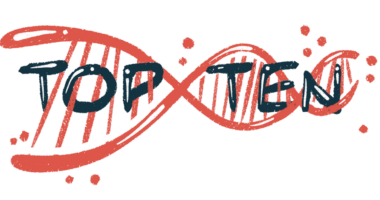First Patient Enrolled in Phase 2 Trial of MNK-1411, Mallinckrodt’s Investigational Therapy for DMD

The first patient has been enrolled in a Phase 2 trial evaluating the effectiveness and safety of MNK-1411, an investigational therapy for Duchenne muscular dystrophy (DMD), announced Mallinckrodt Pharmaceuticals, the treatment’s developer.
The company also reported that MNK-1411 was granted orphan medicinal product status by the European Medicines Agency, facilitating the development and eventually the approval process for the treatment candidate. The therapy was given orphan drug designation in the U.S. in 2017.
MNK-1411 is an injection formulated for prolonged release of the active ingredient cosyntropin, also known as tetracosactide, a lab-made compound that stimulates the melanocortin receptor.
It mimics the natural activity of the adrenocorticotropic hormone (ACTH), including its anti-inflammatory properties, believed to help protect DMD patients from muscular damage.
MNK-1411 is approved outside the U.S. and Europe for certain autoimmune and inflammatory conditions, but not within the U.S. or European countries.
In the randomized, double-blind, placebo-controlled Phase 2 BRAVE trial (NCT03400852), the effectiveness and safety of MNK-1411 will be evaluated in boys ages 4 to 8 with DMD. The trial is still recruiting patients at several sites in the U.S. and two centers in Spain.
Researchers are looking to enroll an estimated total of 132 patients, who will be randomly assigned to one of four arms: two groups with a low and a high dose of MNK-1411 and two groups with a low and high dose of a placebo, administered under the skin twice a week for six months.
Those patients who are able to complete the initial six months of treatment may continue to receive the therapy for an additional six months during an optional open-label extension.
Effectiveness of the treatment will be evaluated through motor performance tests including the 10-meter walk or run, which serves as the trial’s primary objective. Other tests, which represent secondary goals, include the four-stair climb and rise from floor, the NorthStar Ambulatory Assessment, and quantitative muscle measurements using a dynamometer, a device that measures strength.
In 2017, Mallinckrodt completed a Phase 1 trial for MNK-1411 in healthy volunteers, which helped to determine optimal dosing for patients in the current Phase 2 trial.
“We are very excited Mallinckrodt has chosen to study how this investigational drug, MNK-1411, might help in treating Duchenne Muscular Dystrophy,” Pat Furlong, president and CEO of Parent Project Muscular Dystrophy, said in a press release. “In the fight to end Duchenne Muscular Dystrophy, our community welcomes partners dedicated to this goal.”






